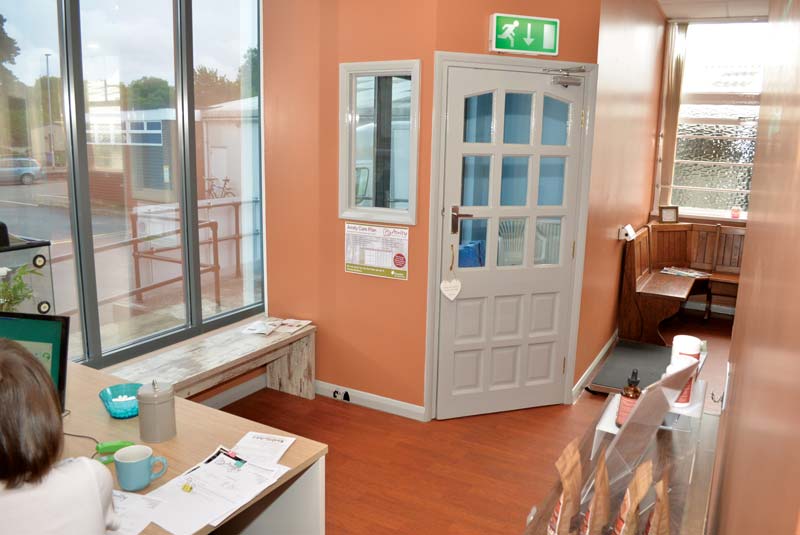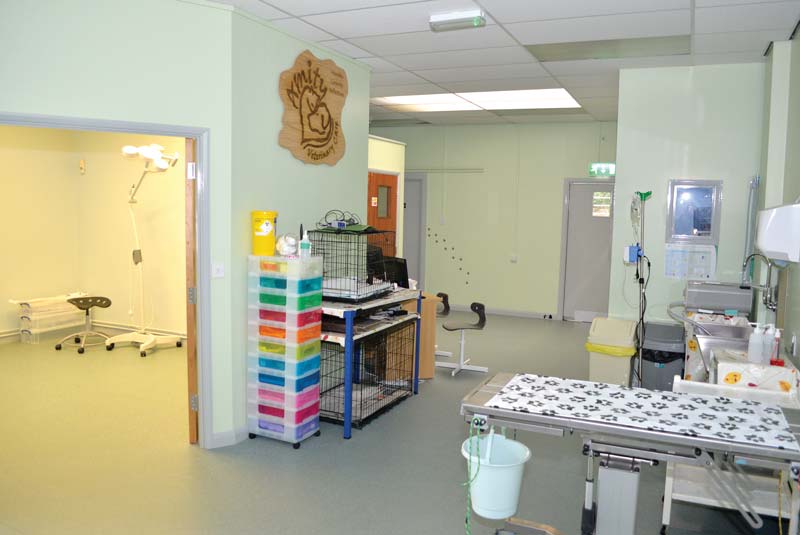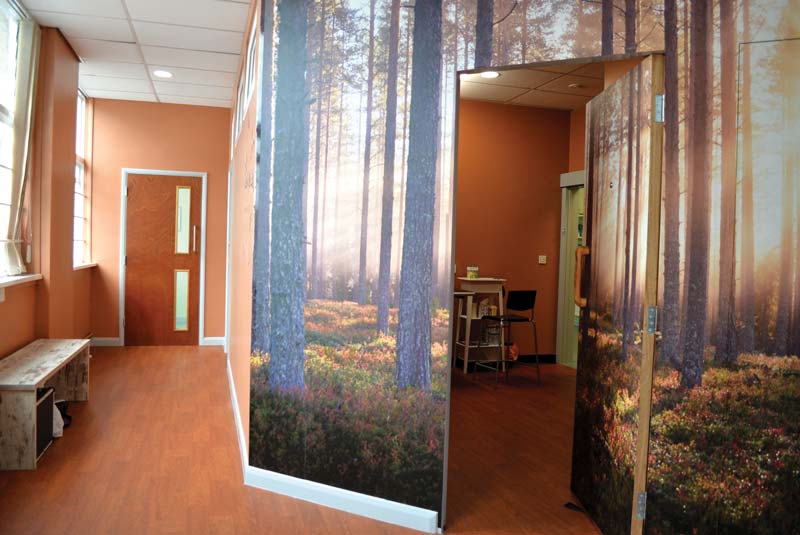8 May 2020
When Lennon Foo opened Amity Vets in Newton Abbott nearly three years ago, he had a bold vision for the way he wanted to deliver veterinary care. VBJ caught back up with Lennon to see how his practice and bold, client-centred vision was bearing up to the coronavirus crisis...

Staff: full-time vets 1 • full-time assistants 2
Fees: initial consult £75-£100 • follow-up £40-£90
Lockdown has been hard for all veterinary practices, but when your business model is built on delivering a highly bespoke service to a members-only client base, the challenges are immense.
RVC graduate Lennon Foo’s entire model is based on offering that “personal touch” – from greeting a client at the car door to sending presents and providing personalised mugs from which to drink his or her speciality tea of choice.
So, how are he and his team coping in a world of lockdowns and social distancing?
The answer to that is it has been a stern test just to keep going, let alone deliver an individual, tailored experience for clients who can’t actually come into the practice. Lennon said: “Fundamentally, we have always wanted to be more than a vet service. We do not compete on prices – we are probably the most pricey around here, considering we are also the youngest; however, we do compete greatly and crazily on value.
“One challenge we face now is the business model, or the structure. We are members only; showing people value is not easy under these circumstances, and obviously it is harder to find new customers who want to be members.
“Our stream of new customers is severely limited because of COVID-19 and we are not seeing our existing members so much, which means our turnover has been slashed down by 80%.
“It is challenging, because we have to literally shut the practice so no customer goes through the front door, but we are still paying the rent for it, so that is one big challenge.
“We are doing emergency only and our owners pull up in the front car park, give us a ring, we take their entire history through the phone, then they leave the animal with us at the front porch – so cats will be in a basket; dogs, they literally open the front door put the dog in, shut the door again and go back to the car and wait – so the front porch is contained.
“This allows us to do what we need to do without getting contact with the human owners.”

In line with many others, Lennon has been forced to drastically cut overheads, defer all loans owed by the business, and apply for as many grants and support packages as possible.
Lennon’s other tough decisions have been around the issue of furlough.
He added: “We had to furlough pretty much half of my team, which is not a very big team, anyway.
“So, right now it’s stripped down to just myself and one assistant who is not a vet, an assistant. We have also got a part-time social media that is still continuing to work for us to deliver our core purpose.
“Apart from just providing a vet service, we are also still keeping our social media going on in terms of content marketing for our audience.”
Amity charges up to £100 for a first consult, while exclusive membership for a large dog owner is more than £2,000 per year, and it’s clear Lennon puts a high value on his time and that of his team.
Charging more by adding more value is at the core of his ethos, but coronavirus has forced many people to adapt, and that includes Lennon.
He added: “The hardest challenge is things that are not urgent that we know bring in money, but we can’t see them because it is not life endangering or pertaining, and that is one challenge.
“We can’t see the routine six months’ check that we can usually use to pull out at any event, or anything that has to happen like dentals, lump removals or investigations; we don’t really have access to these procedures, which means there’s a huge diminish of income.
“So, we are just working for emergencies or things that are deemed necessary, so that can be quite tough – especially for a young business like us: we are only about three years old now. We don’t have many cash reserves; in fact, we still want to break even before becoming profitable because of the challenging business model that we adopted.
And that has precipitated a rethink, as Lennon explained: “Our positioning has changed as well – from luxury to essential and convenience – so we are also running what we call the Amity coronavirus protocol. This includes offering hugely discounted consults and treatments, just to serve as many people as possible, so they can be served and so we can survive.
“So that has shifted our mindset a little bit in how we have to instil even more membership benefits for our existing members because we don’t want them to drop off as well. We know we have to work twice or three times as hard for half or a third of the reward we usually get.”

It is a familiar story at thousands of practices up and down the country, with lockdown measure taking a heavy toll on practice revenues – particularly during the first few weeks of the crisis.
One of the ways Lennon hopes to keep some cash flow is by starting a fund-raising campaign among his existing membership base.
Lennon said: “It’s a fund-raising campaign to make sure we get enough income or just have a bit of income to support us in this difficult time over the next few months. And, in my opinion – purely my opinion – this is going to be a long-term thing. This is not a short-term measure to stay at home for three weeks and then everybody goes back to normal again, so we are projecting it’s going to be between 12 and 24 months.
“So any actions we’re taking right now are sustained for that period of time, rather than just a short-term approach to it. For the fund-raiser we are going through GoFundMe and any donations that are given, if the donor has an account with us, we credit that entire donation into their account.
“So, basically, if they’ve given a donation of £100, the entire £100 will be kept in their account as a credit, so they can come and use £100 when everything has lifted and they need some services in future, so this just allows us to generate income to pay the overheads to sustain a period of opening until we can get a bit more trade.”
Not that Lennon has stopped preaching his message of client love; he has just had to adapt the way it is being done.

The practice is already producing a huge volume of value-adding client material, and the practice’s YouTube channel is still highly active, so engagement levels remain high despite lockdown.
He added: “We have had a YouTube channel for the past year-and-a-half now, and we’ve uploaded more than 160 videos on it for our subscribers to take a look.
“We have our Facebook page that we use as a platform to promote our videos as well, so we average about two to three videos per week and we also do monthly evening talks for pet owners. The information of what’s on the different talks, the topics, are all on our website. It involves anything from talking about vaccination and neutering to keyhole surgery to best food for your pet – things like that.
“This month we are actually doing the top 10 tips to save money at the vets, so that will be quite interesting. That’s our first webinar rather than physical location because of COVID-19.”
While Lennon is doing all he can to make his clients feel like they are still the centre of his universe, he has been doing what he can for his team, too, with daily team nature walks to help clear the senses and provide a welcome boost to the immune system by alleviating stress.
And, as far as Lennon is concerned at least, he expects to be working this way for quite some time. But for Lennon this is a challenge, and Lennon just loves a challenge.
He added: “What we are doing is more long term than just a few months because I believe this is going to affect how vetting is going to be in the future, which is extremely interesting.
“The RCVS has consented to remote prescription and online consults – things like that are a huge shift from what we did last time round. Whether it will go back to normal things again remains to be seen, and it does open up the whole idea of a challenge if maybe vet medicine can be presented in a different way because, as you know, the same method produces the same results.
“It can be improved, but I believe this will force the hand of a lot of people to think differently. How do I present myself? How do I provide vet medicine? How do I provide value while changing the conventional model of how vet medicine has been provided historically? We all need to explore a lot into that to see what we can do more of in terms of online; in terms of value provision, because I do seriously believe this is going to change the way we work.
“I’m very excited about that. It’s a great challenge, and we want to emerge stronger and better. We do not want to survive – we want to thrive after this.”